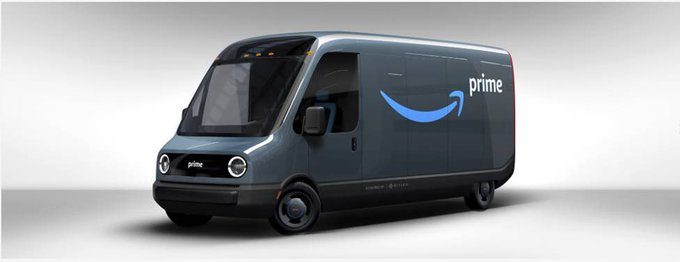NOCC adds third ‘ammonia-ready’ PCTC newbuild orderbook
Norwegian Car Carriers (NOCC) has added a third ‘ammonia-ready’ 7,000ceu LNG-powered ship to its two-vessel, ...
TFII: SOLID AS USUALMAERSK: WEAKENINGF: FALLING OFF A CLIFFAAPL: 'BOTTLENECK IN MAINLAND CHINA'AAPL: CHINA TRENDSDHL: GROWTH CAPEXR: ANOTHER SOLID DELIVERYMFT: HERE COMES THE FALLDSV: LOOK AT SCHENKER PERFORMANCEUPS: A WAVE OF DOWNGRADES DSV: BARGAIN BINKNX: EARNINGS OUTODFL: RISING AND FALLING AND THEN RISING
TFII: SOLID AS USUALMAERSK: WEAKENINGF: FALLING OFF A CLIFFAAPL: 'BOTTLENECK IN MAINLAND CHINA'AAPL: CHINA TRENDSDHL: GROWTH CAPEXR: ANOTHER SOLID DELIVERYMFT: HERE COMES THE FALLDSV: LOOK AT SCHENKER PERFORMANCEUPS: A WAVE OF DOWNGRADES DSV: BARGAIN BINKNX: EARNINGS OUTODFL: RISING AND FALLING AND THEN RISING

Governments, industry stakeholders and international organisations must act to safeguard the role of road transport in driving prosperity as the world faces economic – and climate – uncertainty.
This is the view of the International Road Transport Union (IRU) which has published a manifesto describing road transport as the “lifeblood” of global trade.
Secretary general Umberto de Pretto said: “The calls to action laid out in our manifesto are a clear signal to policymakers and to the road transport industry there is work to be done.”
Road transport accounts for 5.7% of employment worldwide, providing 5m jobs in Europe alone and generating revenues of €500bn.
However, the IRU’s call to arms follows a report exposing concerns over geopolitical unrest, climate change, driver shortages, digitalisation, and perceived poor working environment.
To address these issues, the IRU is calling for increased digitalisation, revision and harmonisation of transport policies, and accelerating industry take-up of environmentally friendly vehicles.
Express operators have certainly committed themselves to future-proofing road transport, with two major agreements that will expand the global electric fleet.
On the eve of what is expected to be the world’s largest climate protest, Amazon placed an order for 100,000 new electric vehicles – the largest order of its kind anywhere.
The vehicles will be provided by Rivian and are expected to be used for the e-commerce giant’s domestic US Prime delivery service.
Chief executive Jim Bezos announced the order at the National Press Club in Washington yesterday, with senior vice president of operations Dave Clark confirming it in a tweet.
Mr Bezos said of the move to take Amazon electric: “We’ve been in the middle of the herd on this issue, and we want to move to the forefront.”
In a statement, Amazon said it had invested $440m in start-up Rivian to accelerate production of electric vehicles, with 10,000 expected on the roads by 2021.
The full order will be complete by 2030, which it said would result in saving 4m tonnes of carbon annually and comes amid a pledge by Amazon to go carbon neutral by 2040.
Amazon’s order comes weeks on from DHL’s Street Scooter subsidiary reaching an MoU with China to boost production to 100,000 Street Scooters per year through a joint venture.
DHL Express has already put more than 11,000 alternative fuel source trucks and vans – meaning electric, hybrid or propane – of which more than 10,000 are electric on the road.
At an event in Chicago last week, it said it was aiming by 2020 to run 25% of its fleet on these alternative fuels, almost doubling its current level.
But landing regulatory approval for its Street Scooter in the US has proved problematic, but chief executive of Express Americas, Mike Parra told The Loadstar he was “keen” to sort it.
Such difficulties are part of the reason the IRU said it was encouraging governments to revise transport policies and to define a harmonised framework.
Backing the move to electric is engine and truck manufacturer Daimler, which is reportedly ceasing development of internal combustion engines to focus on electric alternatives.
Development chief Markus Schaefer told Auto Motor und Sport that it has no plans to develop a next-generation combustion engine, moving focus to new electric systems.
This push into electric will also benefit its trucks and buses, with an announcement it had reached an agreement with Chinese firm CATL for supply of new battery cell modules.
Head of e-mobility Gesa Reimelt said: “As the world’s leading truck manufacturer, we strive to be first with series production zero-emission solutions on a global scale.
“Already we have battery-electric trucks in operation around the world, working with CATL will go a long way in providing a wide range of electric trucks for production from 2021.”
Comment on this article